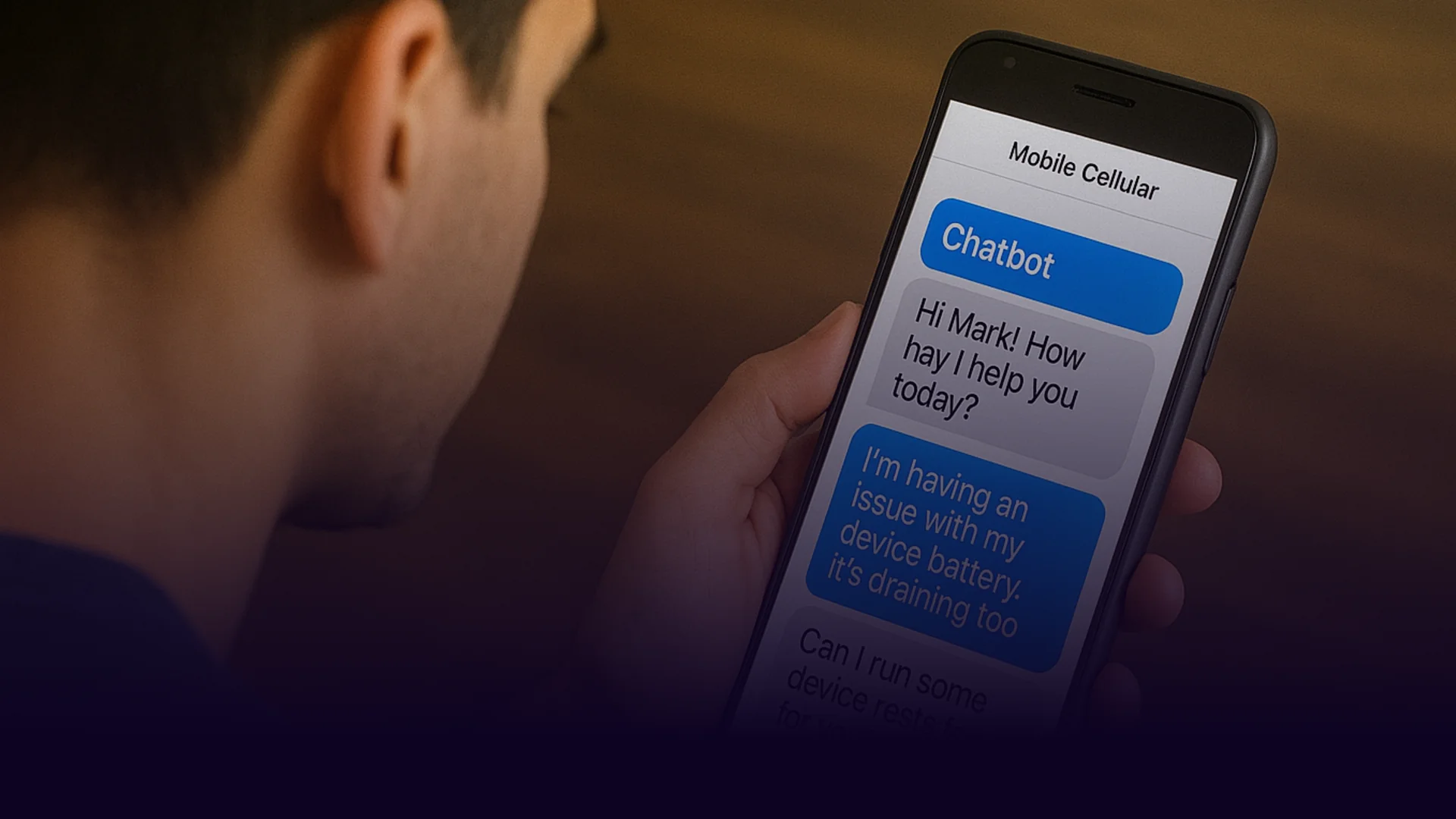The urgency to implement GenAI is increasing. Already 50 percent of telcos indicated that they are actively adopting or assessing GenAI use cases, with customer experience a top priority for AI implementation.
In 2024, TELUS’s Mobile Klinik embarked on a mission to enhance their customer’s in-app experience with a GenAI-driven chatbot pilot that aimed to:
- To proactively initiate a customer journey on their device rather than through self-discovery
- Leverage GenAI to help the app’s virtual agent engage the customer conversationally
- Explore how to offer the right promos that convert
The pilot resulted in four times more engagement and three times more marketing offers being actioned. Here are the four biggest lessons for telcos from Mobile Klinik’s implementation:
Never underestimate the power of a good conversation
Most chatbot deployments aim to deflect calls or automate basic support, which is often limited in scope. We saw conversations differently. By enabling a GenAI agent to interact with users in a natural, intuitive way, we unlocked real-time signals about customer disposition, urgency, and intent. These weren’t just chats, but qualitative, diagnostic moments of truth that revealed what a customer really needed, even before they asked.
For customer experience and device strategy leaders, this means thinking beyond chatbot containment rates. Conversations, when structured well, become a rich feedback loop. They offer the mobile operator a window into unmet customer needs, service friction, common device pain points and even sales potential.
Historical and real-time data bear equal importance
GenAI performs best when it understands context. Our pilot integrated a user’s real-time device status with historical diagnostic data – via MCE’s DeviceAI layer – to form a complete picture of the customer’s device experience. This context helped the chatbot make smarter decisions and guided users toward resolutions that felt personalized and timely.
For operators, this reinforces a core principle: siloed data limits AI impact, especially when interacting autonomously with a customer. To deliver truly intelligent, customer-centric journeys, you need holistic device awareness that fuses historical signals (e.g., device repair history) with real-time diagnostics and user behavior.
Pre-built, fixed customer journeys are obsolete
Traditional digital journeys were rigid, pre-scripted flows designed around assumed customer paths without too much flexibility. They struggled to adapt when users deviated or when new signals emerged mid-interaction that might require a different pathway to the right outcome.
With GenAI, the experience or journey becomes dynamic: data inputs like live device health, history and conversational inputs are processed in real time to build a tailored journey on the fly without needing pre-built pathways. The result is a truly personalized pathway that adapts to each customer’s needs and leads to better outcomes.
Personalization converts
What turned engagement into revenue was personalization. Once we had conversational insights and device data, the GenAI engine could surface offers that actually mattered to the customer—promotions tied to their device condition, repair history, or upgrade eligibility. This level of precision turned a help interaction into a monetization opportunity.
In telco terms: it’s “care to commerce.” When customers feel seen and understood, they’re more likely to act, and that’s what makes GenAI a business tool, not just a tech experiment.
A partner like MCE can enable mobile operators to unlock new value in customer relationships and help operators uncover powerful insights through the use of GenAI for customer-facing applications. Explore our GenAI solution here.





